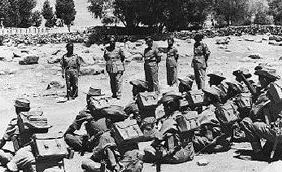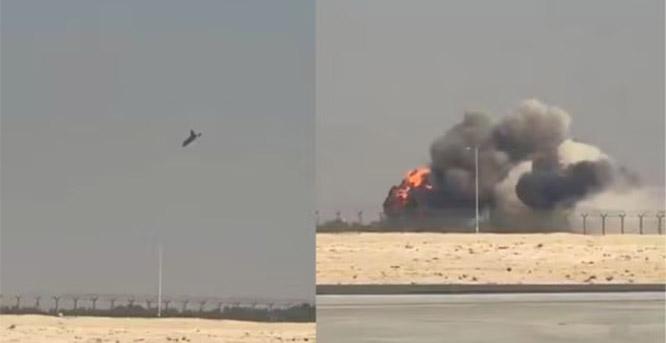
New Delhi, October 10: Any reading of the Sino-Indian war of 1962 does not look good for India. Whether it was Jawaharlal Nehru's misreading of Chinese intentions in the wake of his support to Tibet's rebellion, India's "forward policy" that meant different things to different people, Mao Zedong's desire to teach India a "lesson" or the subsequent national security paranoia that it bred in the Indian political and security systems ...1962 evokes mixed feelings in India even after half a century.
But for India to grow out of the morass of humiliation, it's necessary to revisit that war, and perhaps admit to major blunders committed at every level, not least at the very top.
In 1951, China began its occupation of Tibet, which, by 1959, became a full-throated conquest. Until 1959, India tried to diplomatically persuade Beijing to give some kind of autonomy to Tibet along with providing covert arms shipments to the Tibetan rebellion.
India's discomfort stemmed from the fact that it believed the loss of Tibetan independence robbed New Delhi off an important buffer in the Himalayas. But Beijing viewed India's actions as interference in its internal affairs, and Mao ordered "harder approach" to India's meddling.
In India, Nehru maintained the romance of Hindi-Chini friendship. A more realistic Sardar Vallabhbhai Patel proposed better border development, strengthening of the military presence etc and to better integrate the north-eastern states. John Garver, in Protracted Contest, writes, "Patel saw clearly the linkage between Tibet and what would become the crux of the border/territorial issue."
Nehru looked at the inhospitable Tibetan terrain and decided first, not to push the Chinese too far, second that they would not be able to maintain troops in distant Tibetan plateau, and third that China would not engage in any major attack against India. However, he completely missed the technology argument, which China could and did.
By 1959, a huge change came over Indian public opinion at China's open repression in Tibet, which led the Dalai Lama to flee to India in 1959. In April, 1960, Nehru reject Zhou Enlai's boundary settlement proposal. Mao was convinced India was working with the US and USSR against China. Contemporary Chinese thinking believed that India's desire to keep Tibet was the cause of the 1962 war. India has refused to declassify documents of that era.
Nehru's forward policy, his demand that China vacate "all Indian territory" and his support of the Tibetan rebellion were all part of these classified docements. China had been active in Aksai Chin for over a decade before 1962. India was aware of Chinese activity there from 1951. But in 1953, Nehru decided to redraw the boundary that included Aksai Chin within India, as opposed to British policy of 1899, which kept Aksai Chin out of India. In 1957, Beijing's road building activities could not be ignored any longer, and India sent patrols to the area. It would be the beginning of the India-China conflict that would culminate in 1962.
By 1961, Nehru's forward policy had taken shape, creating 60 forward posts, 43 of them north of the McMahon Line. Meanwhile, China, too, had been preparing for war with India because Mao wanted to teach India "a lesson".
Indian units reported increased Chinese aggression, but the Nehru government did not read the tea leaves. China prepared for war, while India missed the clues. After intermittent clashes in the preceding days, when on October 20, 1962, China launched massive strikes in the north-east and Ladakh, India was completely caught off guard.
The Himalayan war ended in a rout of Indian forces. Chinese then withdrew although their victory was not without cost. The defeat, however, changed India's view of China forever. India claims the moral high ground, blaming China for a stealthy strike but it completely misread its giant neighbour. Mao, who saw Nehru as a conniving and pretentious leader, began and ended the war on his own terms.
In between, Indian troops suffered successive reverses. The People's Liberation Army (PLA) overran Indian positions south of the Mcmahon line. Chinese troops overwhelmed Indian defences by the sheer weight of numbers and Tawang was soon under attack.
In the north-east, confusion and courage, foolhardiness and daredevilry were all playing out as a dazed military leadership dithered about its response. Major General A S Pathania, commanding the fourth division in Kameng in Arunachal Pradesh, ordered his troops to withdraw in humiliation.
On October 24, 1962, Zhou offered Nehru a settlement that was rejected. Parliament passed a resolution resolving to "drive out aggressors" from Indian soil. Hostilities resumed with Chinese attacks on Sela and Bomdila. PLA was close to Tezpur, when China declared a unilateral ceasefire and withdrew 20km from the Line of Actual Control. According to Henry Kissinger, Mao did not see India as a perpetual foe, but famously remarked that force will "knock Nehru back to the negotiating table".






Comments
Add new comment